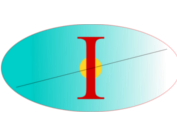Citation:
| zhang2020linear.pdf | 1.31 MB |

Abstract:
Generalized Kohn−Sham density functional theory is a popular computational tool for the ground state of extended systems, particularly within range-separated hybrid (RSH) functionals that capture the long-range electronic interaction. Unfortunately, the heavy computational cost of the nonlocal exchange operator in RSH-DFT usually confines the approach to systems with at most a few hundred electrons. A significant reduction in the computational cost is achieved by representing the density matrix with stochastic orbitals and a stochastic decomposition of the Coulomb convolution (J. Phys. Chem. A 2016, 120, 3071). Here, we extend the stochastic RSH approach to excited states within the framework of linear-response generalized Kohn−Sham time-dependent density functional theory (GKS-TDDFT) based on the plane-wave basis. As a validation of the stochastic GKS-TDDFT method, the excitation energies of small molecules N2 and CO are calculated and compared to the deterministic results. The computational efficiency of the stochastic method is demonstrated with a two-dimensional MoS2 sheet (∼1500 electrons), whose excitation energy, exciton charge density, and (excited state) geometric relaxation are determined in the absence and presence of a point defect.



